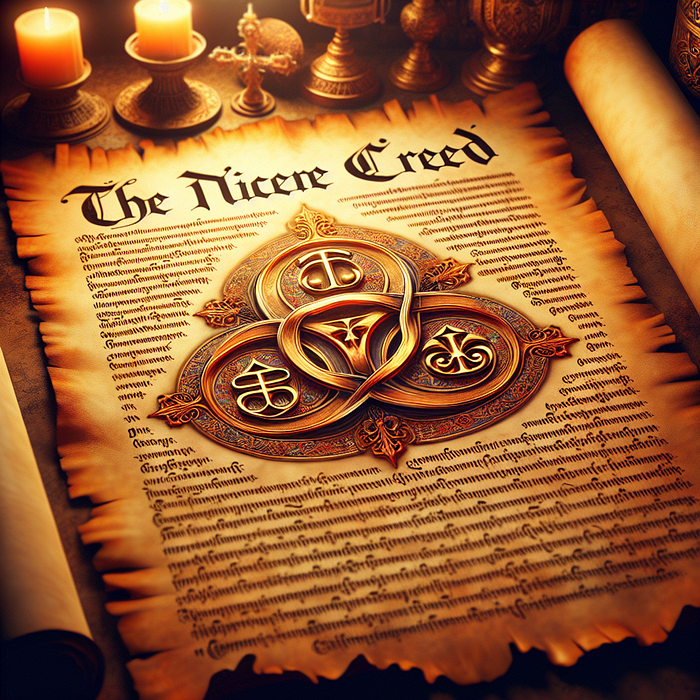What Your Pastor Might Not Have Shared About the Nicene Creed
Written on
Understanding the Nicene Creed: A Pillar of Faith
In today's world, rich with diverse beliefs and practices, the Nicene Creed stands as a vital unifying element for all who identify as Christians. Established at the Council of Nicaea in A.D. 325, the Creed embodies the collective voice of the Christian community. It transcends denominational boundaries, encapsulating the essence of the Christian faith in a few key affirmations. This Creed serves as a foundational reference point for countless believers who uphold their Christian identity.
The Fundamental Principles of Christianity
At its core, the Nicene Creed articulates the fundamental truths that underpin Christian belief. It affirms the nature of God as a Trinity—Father, Son, and Holy Spirit—three distinct persons in perfect unity and eternal love. The Trinity is not merely a theological concept; it is woven into the fabric of Christian worship, shaping spiritual practices and forming the heart of the redemption narrative.
Moreover, the Creed encompasses the birth, life, suffering, resurrection, and ascension of Jesus Christ. Each of these elements is rich in theological significance, highlighting the Lord’s divine nature, humanity, and redemptive mission. When believers from various traditions recite the Creed, they collectively reaffirm these essential aspects of their faith.
Creation and the Church
Beyond its focus on God and Christ, the Creed also acknowledges creation, declaring God as the "Maker of heaven and earth" and affirming His sovereign oversight of all existence. It recognizes the "one holy catholic and apostolic Church," which unites Christians in their shared commitment to a global community linked by faith and baptism.
The Importance of Understanding the Creed
Grasping the Nicene Creed holds significant importance for several reasons. First, it offers historical context for modern faith practices. The Creed was developed during a time of intense theological conflict and division within the early Church, symbolizing a consensus at a crucial juncture in Church history.
Second, familiarity with the Creed enables informed dialogue with other Christian traditions. In our increasingly pluralistic society, where ecumenism is vital, acknowledging common beliefs fosters unity among different branches of Christianity.
Lastly, for individual believers, contemplating the Creed can enrich personal faith. Engaging with its profound theological implications encourages a deeper understanding of one’s own beliefs.
Conclusion
The Nicene Creed remains significant today, encapsulating the enduring truths of Christianity without being confined to any particular cultural or historical context. For nondenominational Christians, it serves as a reminder that, despite diverse expressions of worship, there exists a core set of beliefs that have united followers throughout history.
By embracing this ancient declaration, one connects with a continuum of believers across generations—forming a deep bond with both the past and future who have found these words to adequately express their core convictions about God’s nature and actions. Equipped with insights about this foundational document, we are better positioned to express our faith with clarity and unity in an increasingly complex world.

Chapter 1: Historical Context of the Nicene Creed
Section 1.1: The Council of Nicaea
The Nicene Creed was established during a significant council meeting that addressed various theological disputes.
This video discusses the relevance of the Nicene Creed and its implications for modern Christian practice.
Subsection 1.1.1: Theological Debates
The formulation of the Creed was a response to intense theological discussions that shaped the early Church's beliefs.
Section 1.2: The Role of the Trinity
Understanding the Trinity is essential for grasping the full meaning of the Nicene Creed and its implications for Christian worship.
Chapter 2: Significance of the Nicene Creed Today
This video explores the argument that the Nicene Creed is inconsistent with Scripture, inviting viewers to reflect on its theological implications.